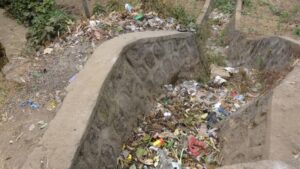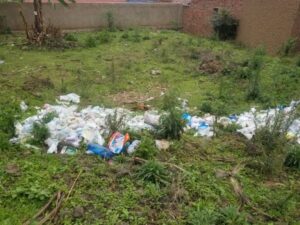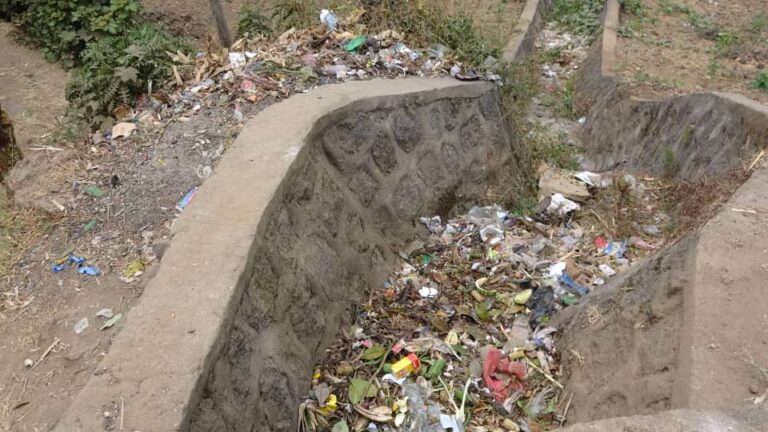The Persistence of Poor Waste Management in Rwanda’s Urban Areas
In the 1990s, traditional waste management in Rwanda involved scattering waste in open fields near homes, with some burning waste for organic manure.
While these practices may have served a purpose at the time, they have contributed to significant environmental challenges, especially in informal urban settlements.
As Rwanda continues to urbanize and modernize, the government has introduced more sustainable waste management practices. These include the enforcement of plastic bag bans, encouraging waste segregation, and promoting recycling and composting. However, old habits and mindsets persist, particularly in urban areas, where some residents still dump waste in open spaces, resulting in piles of mixed biodegradable materials and plastics.

Evode Niyonsaba, a resident of suburban Musanze, highlights the ongoing issue of diaper waste accumulating in nearby shrub-filled plots.
“People use the cover of night to dump all these diapers here. Instead, they could burn them, although both options are harmful to the environment. If you look closely, it’s the families with a traditional mindset who don’t contribute to waste collection fees,” Evode said.
Mukamana Alice, who lives near a drainage system filled with waste, wonders whether local authorities care about the issue.
“This illegal dumping has been going on for three months, and it’s affecting me. We’ve tried to remove the waste as a temporary solution, but some of our neighbors haven’t moved on from the old ways when we used to dump waste everywhere. Local leaders should enforce environmental laws and raise awareness about the impact of poor waste management,” Mukamana said.

Marie Grace, the district environmental officer, stated that more effort is needed to change people’s harmful behaviors toward the environment.
“We will continue educating people on how to harmonize their activities with nature, and we’ll work to eliminate plastic dumping in drainage systems. For those who persist in these practices, we will enforce environmental laws,” Grace said.
The Consequences of Poor Waste Management
Much of Rwanda’s waste is still dumped in open landfills, leading to overflowing sites such as the Nduba landfill in Kigali. This results in air, soil, and water pollution, particularly when hazardous waste mixes with municipal waste.
Improper waste management attracts pests and creates breeding grounds for diseases such as malaria, cholera, and respiratory infections, posing a threat to public health, especially in informal settlements.
Burning waste is a widespread practice that releases toxic fumes and particulate matter into the atmosphere, contributing to air pollution and climate change. Plastic waste, in particular, poses a significant challenge as it does not easily decompose.
In cities like Musanze, poor waste management results in clogged drainage systems during the rainy season, increasing the risk of flooding and causing damage to infrastructure and property.
Uncollected garbage piles in public spaces diminish the aesthetic appeal of cities, negatively affecting tourism and reducing the quality of life for residents.
Traditional waste disposal methods rarely involve sorting at the source, limiting the potential for recycling and composting. As a result, more waste ends up in landfills, exacerbating the problem.
Organic Law N° 04/2005 of April 8, 2005, regarding the protection, conservation, and promotion of the environment in Rwanda, Article 84 states that it is prohibited to keep or dump waste in a place where it may:
1° Encourage the breeding of disease carriers; 2° Disrupt people and property.

